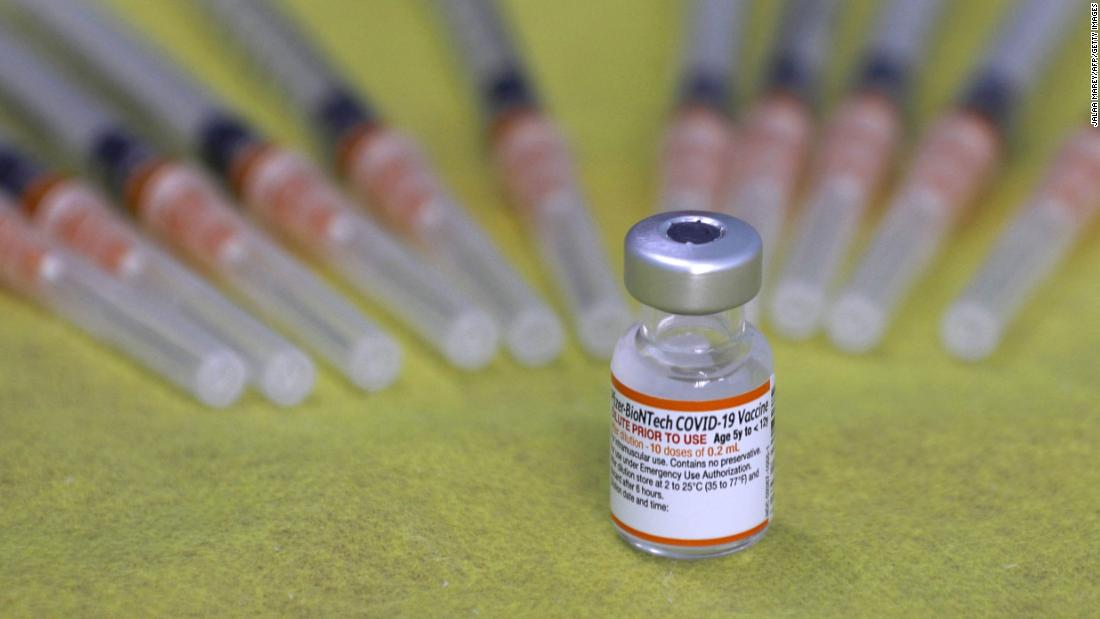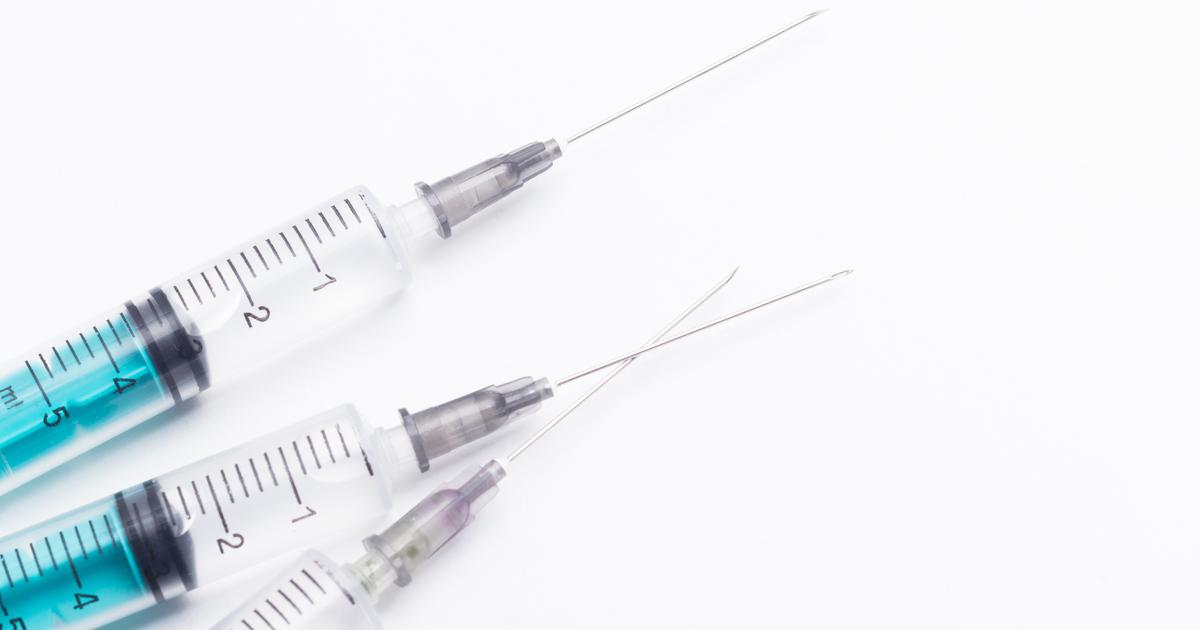This Chinese vaccine is not effective against 0:48 variants
Hong Kong (CNN) -
When the highly infectious delta variant hit China this summer, some public health experts were hopeful that the country could soon receive an immune booster of the highly effective covid-19 mRNA vaccine. developed by BioNTech.
In July, the vaccine was reported to have passed an expert review by regulators in China and was in the administration review stage.
This was stated by Fosun Pharma, BioNTech's Chinese partner licensed to produce and distribute the vaccine in the Greater China region.
Fosun even planned to start production for national clinical trials in late August.
However, five months later there is still no word from Chinese officials on when, or if, the vaccine will be approved.
Even as the newly detected omicron variant represents a new challenge for China's zero covid-19 strategy.
And for its less effective national vaccines.
There are still many unknown of the fast-spreading omicron variant, which has an unusually high number of mutations.
Which, precisely, scientists worry about the possibility that they lead to this variation being more transmissible and less susceptible to existing vaccines.
The efficacy of Chinese covid-19 vaccines 'is not high,' admits a senior Chinese government health official
This Chinese vaccine is not effective against 0:48 variants
The mRNA vaccine vs.
those of China
Preliminary laboratory studies show that two doses of the BioNTech vaccine, which is produced by Pfizer outside of China, may not provide sufficient protection against omicron infection, but three doses may neutralize it, Pfizer / BioNTech said in a statement last week. .
He also mentioned that two doses can still provide protection against serious illness.
advertising
China has not published studies on how much its domestic vaccines protect against the omicron variant.
Although experts and state media have expressed their confidence in stopping the new variant.
More than 1.1 billion Chinese, or nearly 80% of the population, have been fully inoculated.
Mainly, with inactivated vaccines developed by Sinopharm and Sinovac.
But, their efficacy was found to be much lower than that of mRNA injections.
And studies suggest that the immunity provided by Chinese vaccines declines rapidly.
According to the World Health Organization (WHO), Sinovac's CoronaVac vaccine was only 51% effective in preventing symptomatic disease against the parent variant.
While Sinopharm was 79%, according to the data.
In comparison, the efficacy of the mRNA vaccines developed by Pfizer / BioNTech and Moderna was as high as 95%.
And a Hong Kong study published in
The Lancet
in June found that healthcare workers fully vaccinated with the BioNTech mRNA injection had about 10 times the amount of antibodies as those who received the inactivated Sinovac vaccine.
The limited protection that Chinese vaccines provide is far from sufficient to meet the country's ambitious goal of keeping COVID-19 infection to zero within its borders.
In recent months, authorities have resorted to increasingly stringent measures to curb local outbreaks.
Often with great financial cost and disruptions to daily life.
But infections have continued to increase.
Last week, more than 130 cases were reported in the eastern province of Zhejiang.
This is home to the main manufacturing and export centers in the country.
And several local authorities in China have asked residents not to travel home during the Chinese Lunar New Year.
Just to reduce the spread of the virus.
To enhance the waning public immunity, Chinese authorities have started to implement booster vaccines, but again using those that are inactive.
Pfizer / BioNTech says that two doses of the vaccine may not provide sufficient protection against the omicron variant, but three doses may neutralize it.
Sinovac vaccine is only 50.38% effective 2:25
The efficacy of the mRNA vaccine
Some studies have found that mRNA vaccines can elicit better immune responses with booster injections. Recent British research, for example, found that the mRNA vaccines made by Pfizer / BioNTech and Moderna provide the greatest boost to antibody levels when given 10 to 12 weeks after the second dose. Meanwhile, two separate studies from Israel published last week found that booster doses of the Pfizer / BioNTech vaccine reduced infections tenfold and deaths from Covid-19 by 90%.
It's not that Chinese officials are unaware of the advantage of using mRNA vaccines.
Last month, Zeng Guang, former chief epidemiologist at the Chinese Center for Disease Control and Prevention, acknowledged that "real-world data shows that using recombinant protein or mRNA vaccines as booster doses for inactivated vaccines will achieve better results, "citing data from countries such as Turkey, Thailand and Lebanon.
But still, Zeng insisted that using the same technology to administer booster injections would be safer and more accepted by the public.
So why is the Chinese government reluctant to approve Western mRNA vaccines?
Yanzhong Huang, senior global health researcher at the Council on Foreign Relations, said politics appears to be the main issue at stake.
The Chinese vaccination campaign
China pioneered the global vaccine race for much of last year, developing multiple COVID-19 vaccines using the old-fashioned method of employing an inactivated whole virus to stimulate the body to build immunity.
It has also shipped billions of doses abroad, a campaign that provided vital access to vaccines in developing countries, while also helping Beijing promote soft power and project international influence.
"When China developed its own vaccines, it used them to show China's technological progress. And now, if you switch to a foreign-made vaccine, that amounts to admitting that you are not as good as other countries in terms of technology capabilities." Huang said.
Latin America turns to China and Russia for vaccine 3:53
China's government may also be interested in protecting the interests of its national vaccine industry, according to Huang.
"I'm sure they (existing vaccine manufacturers) would be very reluctant to introduce outsiders to this huge market," he said.
While Chinese regulators delayed approval of the BioNTech vaccine, domestic companies were given the green light to go ahead with developing their own mRNA vaccines.
Last month, China's Ministry of Science and Technology approved clinical trials of a domestically developed mRNA vaccine as a booster dose for adults who have been fully inoculated with inactivated vaccines.
Clinical trials have already been conducted in countries such as Mexico and Indonesia, although the results have yet to be announced.
The vaccine, ARCoVax, was jointly developed by Walvax Biotechnology, Suzhou Abogen Biosciences, and the Academy of Military Medical Sciences, a Chinese military research institute.
Its production base in southwestern Yunnan province has the capacity to produce 200 million doses a year, according to state media reports, which touted China's success in "grasping the core mRNA vaccine technology."
Other Chinese companies, including state-owned giant Sinopharm, are also developing mRNA vaccines, Huang said.
Beijing will likely want to approve homegrown mRNA vaccines before giving the green light to foreign ones, he added.
But there are signs that Chinese experts hope for further cooperation with their Western counterparts.
Over the weekend, Zhong Nanshan, a leading Chinese respiratory disease expert and government adviser, urged China to increase exchanges and cooperation on vaccine development with other countries.
"We need to learn about the good things in other countries, like mRNA (vaccines)," Zhong said at a forum in the southern city of Guangzhou on Saturday.
"They have devoted years to research and have managed to develop the world's first mRNA (vaccine) in just a few months ... We need to learn from their technology in this area," he said.
Coronavirus vaccine









